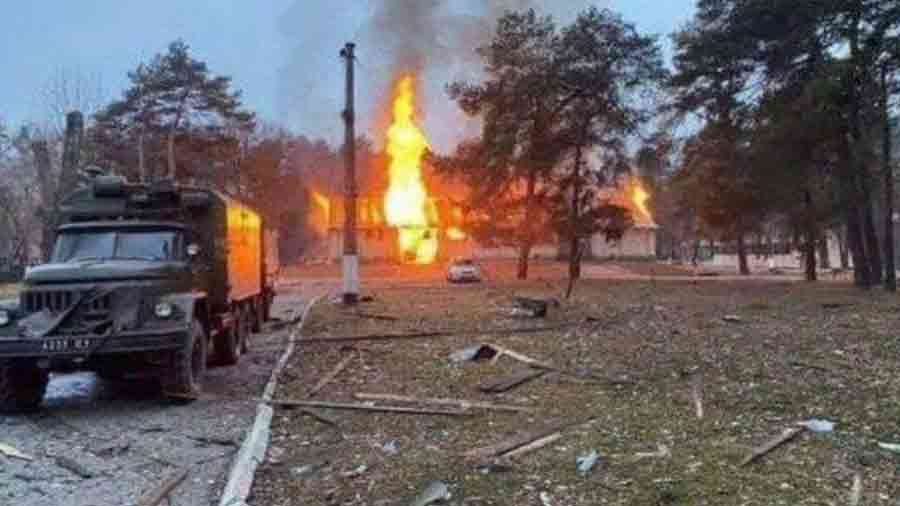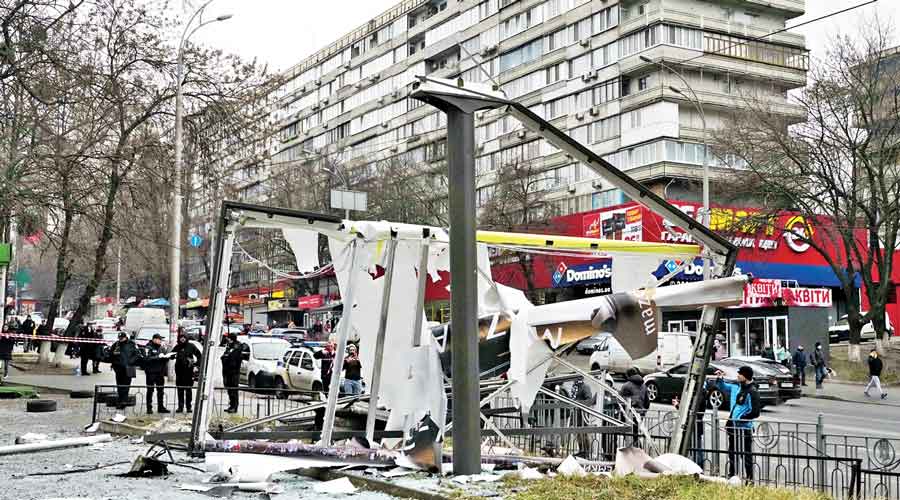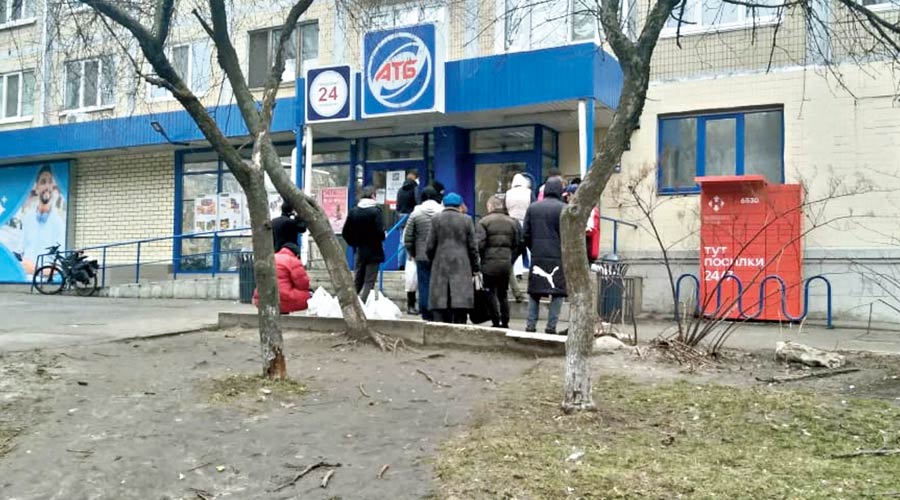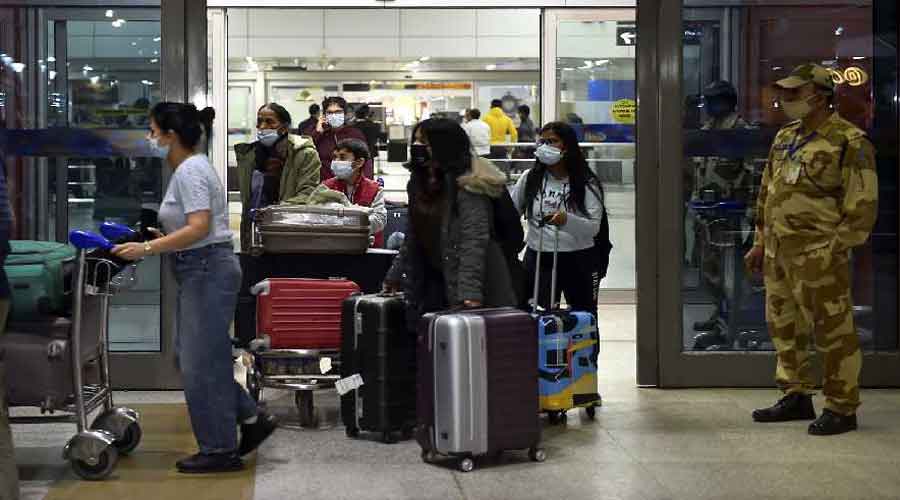Ukrainian forces battled Russian invaders around nearly all of the country’s perimeter on Thursday after Moscow mounted the biggest attack on a European state since World War Two.
The Russian military plunged into Ukraine by land, sea and air, killing dozens of Ukrainian soldiers, and ominously touching off a pitched battle at the highly radioactive Chernobyl exclusion zone that risked damaging the cement-encased nuclear reactor that melted down in 1986.
- Russia carries rocket strike on Kyiv, Ukraine's minister of foreign affairs says in a tweet
- Russian troops approach Kyiv as explosions heard across the Ukrainian capital, reports news agency AFP
President Vladimir Putin declared war in a pre-dawn televised address, saying he had ordered “a special military operation” to protect people, including Russian citizens, subjected to “genocide” in Ukraine — an accusation the West calls baseless propaganda.
“And for this, we will strive for the demilitarisation and denazification of Ukraine,” he added. “All responsibility for bloodshed will be on the conscience of the ruling regime in Ukraine.”
Before sunrise, the terrifying thud of artillery strikes shook airports and military installations all over Ukraine. By sunset, Russian special forces and airborne troops were pushing into the outskirts of the capital, Kiev. A picture was emerging of fierce fighting across multiple fronts.
While the ultimate goal of Putin and his generals remained unclear, American officials assessed that the end game was likely to be the decapitation of Ukraine’s government and the replacement of its President, Volodymyr Zelensky, with a Russian-controlled puppet regime.
As of early evening on Thursday, Zelensky remained in place as commander-in-chief, and Ukrainian forces, which officials said shot down several Russian jets and a helicopter, were engaged in fierce battles all along a broad front line to maintain control over their country.
Russia denied reports its aircraft or armoured vehicles had been destroyed.
More than 40 Ukrainian soldiers were killed and dozens were wounded in fighting on Thursday morning, said Oleksiy Arestovich, an adviser to Zelensky.
“Russia treacherously attacked our state in the morning, as Nazi Germany did in the WW2 years,” tweeted Zelensky.
It was in the toxic marshes of the Chernobyl exclusion zone in northern Ukraine that one of the most dangerous battles was playing out.
Later Thursday, Russian forces captured the power plant, according to Mykhailo Podolyak, an adviser to the Ukrainian President’s office. He said the condition of the plant and its nuclear waste storage facilities was unknown.
Missiles rained down on Ukrainian targets. Kiev reported columns of troops pouring across the borders with Russia and Belarus stretching from the north and east, and landing on the coasts from the Black Sea in the southwest and the Azov Sea in the southeast.
Fierce fighting was taking place in the regions of Sumy and Kharkiv in the northeast, Kherson and Odessa in the south, and at a military airport near the capital Kiev, an adviser to the Ukrainian presidential office said.
Explosions and gunfire were heard throughout the morning in Kiev, a city of 3 million people. The highway out of the city choked with traffic as residents fled.
The assault brought a calamitous end to weeks of fruitless diplomatic efforts by western leaders to avert war.
In the end, the war appeared to be playing out exactly as the American intelligence community said it would when officials first warned about the threatening movement of Russian troops toward Ukraine’s borders last fall.
Additional reporting from New York Times News Service


 has embarked on a path of evil, but
has embarked on a path of evil, but  is defending itself & won't give up its freedom no matter what Moscow thinks.
is defending itself & won't give up its freedom no matter what Moscow thinks.










